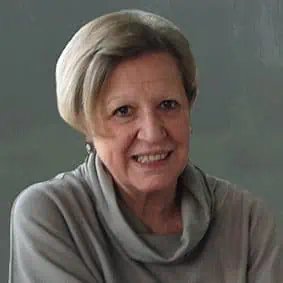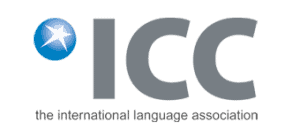Η ΔΙΑΜΕΣΟΛΑΒΗΣΗ ΩΣ ΜΕΣΟΝ ΔΙΑΔΡΑΣΤΙΚΗΣ ΜΑΘΗΣΗΣ ΣΕ ΠΟΛΥΓΩΣΣΙΚΑ ΕΚΠΑΙΔΕΥΤΙΚΑ ΠΕΡΙΒΑΛΛΟΝΤΑ
MEDIATION AS A MEANS TO INTERACTIVE LEARNING IN MULTILINGUAL EDUCATIONAL SPACES
LA MÉDIATION COMME MOYEN D’APPRENTISSAGE INTERACTIF DANS LES ESPACES ÉDUCATIFS MULTILINGUES
Plenary Speaker: Prof Bessie Dendrinos (Professor Emerita, Department of English Language and Literature, National and Kapodistrian University of Athens)
Abstract
(To pay tribute to Athens, the conference’s host city, Prof Dendrionos will deliver her plenary in Greek, complemented by her PowerPoint presentation in English and French.)
Όταν η έννοια της διαγλωσσικής διαμεσολάβησης εμφανίστηκε στο ΚΕΠΑ (Συμβούλιο της Ευρώπης 2001), αγνοήθηκε από τη διεθνή ξενόγλωσση εκπαιδευτική κοινότητα, κυρίως λόγω του τότε κυρίαρχου μονογλωσσικού παραδείγματος στη διδασκαλία των ξένων γλωσσών, αλλά και επειδή η έννοια δεν είχε οριστεί επαρκώς και περιγραφεί κατά επίπεδο γλωσσομάθειας, όπως οι δραστηριότητες της κατανόησης και παραγωγής λόγου. Μόνο η Γερμανία και η Ελλάδα υιοθέτησαν το 2003 την έννοια αυτή, καθώς η πρώτη την συμπεριέλαβε στα ομοσπονδιακά της προγράμματα σπουδών για τις ξένες γλώσσες και η δεύτερη την συμπεριέλαβε ως αντικείμενο αξιολόγησης στις εξετάσεις για το ΚΠΓ. Τώρα πια, είκοσι χρόνια μετά, η γλωσσική διαμεσολάβηση προσελκύει την προσοχή της ξενόγλωσσης εκπαιδευτικής κοινότητας λόγω της συμπερίληψής της με λεπτομερείς κλιμακωτούς περιγραφικούς δείκτες στο CEFRCV (Συμβούλιο της Ευρώπης 2020).
Ωστόσο, όπως υποστηρίζω στο βιβλίο μου, Mediation as Negotiation of Meanings, Plurilingualism and Language Education (Routledge 2024), η διαμεσολάβηση δεν είναι μονάχα ένα αντικείμενο διδασκαλίας και μάθησης στην ξενόγλωσση τάξη. Είναι μια κοινωνική πρακτική την οποία όλοι ασκούμε με μια διαισθητικά αναπτυγμένη ικανότητα που βελτιώνεται εμπειρικά ή/και με καθοδήγηση. Για να παρέχουμε την κατάλληλη καθοδήγηση, βέβαια, χρειαζόμαστε κοινωνιο-γλωσσολογικά και εθνογραφικά δεδομένα σχετικά με το γιατί και πώς οι άνθρωποι διαμεσολαβούν ενδογλωσσικά και διαγλωσσικά, σε διαφορετικά κοινωνικά περιβάλλοντα, καθώς επικοινωνούν με άλλους. Όμως αυτού του τύπου τα δεδομένα είναι δυσεύρετα και το έλλειμμα αυτό είναι που με οδήγησε στην απόφαση να πραγματοποιήσω μια Μελέτη Περίπτωσης, στόχος της οποίας ήταν να διερευνήσω τις πρακτικές ενδογλωσσικής και διαγλωσσικής διαμεσολάβησης των φοιτητών πανεπιστημίου και να ανακαλύψω τους τρόπους με τους οποίους διαμεσολαβούν, τι είδους ενέργειες διαμεσολάβησης εκτελούν και, όταν διαμεσολαβούν, πώς χρησιμοποιούν την ποικιλογλωσσική τους ικανότητα.
Η ευκαιρία για την υλοποίηση της μελέτης, δόθηκε με το έργο «Δυναμική πολυ-/ποικιλογλωσσία ως βάση για την αριστεία στην τριτοβάθμια εκπαίδευση χωρίς αποκλεισμούς», με επικεφαλής το Πανεπιστήμιο του Στρασβούργου. Το έργο αυτό, στο οποίο συμμετείχα ως εκπρόσωπος του ECSPM, μόλις ολοκληρώθηκε και ο σκοπός αυτής της ομιλίας είναι να παρουσιάσω τα αποτελέσματα αυτής της συγκεκριμένης μελέτης.
When the notion of cross-linguistic mediation was introduced by the CEFR (Council of Europe 2001), it was disregarded by the international foreign language community, mainly because of the still dominant monolingual paradigm in foreign language teaching, but also because the notion was not described with scaled can-do statements as others like reading, listening, reading and writing were. Only Germany and Greece adopted the notion then. The former included it in its national standards and its federal foreign language curricula and the latter included it as a ‘skill’ to be tested in its high-stakes national foreign language exams (known with the acronym KPG). Twenty years later, linguistic mediation is attracting considerable attention due to its inclusion with detailed scaled descriptors in the CEFRCV (Council of Europe, 2020). Foreign language professionals in Europe and beyond are considering how best to include it in their teaching and testing programs.
However, as I argue in my book, Mediation as Negotiation of Meanings, Plurilingualism and Language Education (Routledge 2024), mediation is not only an element to teach in foreign language classes. It is a social practice that we all engage in, with an intuitively developed ability we can improve with experience and proper guidance. To provide such guidance, we need sociolinguistic and ethnographic data about why and how people mediate across and within the same language, in different social contexts, as they interact with others. Yet, such data are lacking, and the deficit is what led me to the decision to carry out a Case Study whose aim was to investigate university students’ intra- and cross-linguistic mediation practices and to find out the ways in which they mediate, what kind of mediation actions they perform and, when they mediate, how they make use of their plurilingual competence.
The opportunity was provided through a project, entitled “Dynamic multi-/plurilingualism as a basis for excellence in inclusive higher education”, led by the University of Strasbourg. This project, in which I took part as ECSPM representative, has just been completed and the purpose of this talk is to present the results of this study.
Lorsque la notion de médiation translinguistique a été introduite par le CECR (Conseil de l’Europe 2001), elle a été ignorée par la communauté internationale des langues étrangères, principalement en raison du paradigme monolingue encore dominant dans l’enseignement des langues étrangères, mais aussi parce que la notion n’était pas décrite par des énoncés de capacités échelonnées comme l’étaient d’autres notions telles que la lecture, l’écoute, la lecture et l’écriture. Seules l’Allemagne et la Grèce ont alors adopté la notion. La première l’a incluse dans ses normes nationales et ses programmes fédéraux d’enseignement des langues étrangères, et la seconde l’a incluse en tant que “compétence” à tester dans ses examens nationaux de langues étrangères à enjeux élevés (connus sous l’acronyme KPG). Vingt ans plus tard, la médiation linguistique fait l’objet d’une attention considérable en raison de son inclusion dans le CEFRCV (Conseil de l’Europe 2020) avec des descripteurs détaillés et échelonnés. Les professionnels des langues étrangères en Europe et ailleurs réfléchissent à la meilleure façon de l’inclure dans leurs programmes d’enseignement et d’évaluation.
Cependant, comme je l’affirme dans mon livre, Mediation as Negotiation of Meanings, Plurilingualism and Language Education (Routledge 2024), la médiation n’est pas seulement un élément à enseigner dans les cours de langues étrangères. Il s’agit d’une pratique sociale dans laquelle nous nous engageons tous, avec une capacité développée intuitivement que nous pouvons améliorer avec de l’expérience et des conseils appropriés. Pour fournir de tels conseils, nous avons besoin de données sociolinguistiques et ethnographiques sur le pourquoi et le comment de la médiation à travers et à l’intérieur d’une même langue, dans différents contextes sociaux, lorsqu’ils interagissent avec d’autres. Or, ces données font défaut, et c’est ce déficit qui m’a amené à décider de réaliser une étude de cas dont l’objectif était d’enquêter sur les pratiques de médiation intra- et interlinguistique des étudiants universitaires et de découvrir leurs modes de médiation, le type d’actions de médiation qu’ils réalisent et, lorsqu’ils font de la médiation, la manière dont ils utilisent leur compétence plurilingue.
L’occasion m’a été donnée par un projet intitulé « Le multi-/plurilinguisme dynamique, terreau de l’excellence inclusive dans l’enseignement supérieur », mené par l’Université de Strasbourg. Ce projet, auquel j’ai participé en tant que représentant de la CEMSP, vient de s’achever et l’objectif de cet exposé est de présenter les résultats de cette étude.
Bio

Bessie Dendrinos

Basilique (Bessie) Dendrinou
Professeur émérite à l’Université nationale et kapodistrienne d’Athènes (NKUA), directrice du Centre de recherche sur l’enseignement et l’évaluation des langues (RCeL) et chef du comité scientifique du Centre d’excellence pour le multilinguisme et la politique linguistique (CEM) à la NKUA. Depuis 2003, elle est présidente du jury d’examen de la suite d’examens nationaux grecs de langues étrangères (connue sous le nom de KPG). Ses recherches portent sur la pédagogie des langues étrangères, le développement de programmes et de matériels, la compétence plurilingue et la médiation intra/interlinguistique, les tests et l’évaluation des langues. Cependant, son vif intérêt pour la linguistique appliquée socialement responsable l’a également amenée à étudier le discours bureaucratique dans les documents publics grecs, ainsi que l’idéologie du genre construite linguistiquement et les représentations linguistiques de la pauvreté et de l’écologie. Elle publie en anglais et en grec, mais certaines de ses publications sont également parues en espagnol, en portugais et en français. The Hegemony of English (Routledge), coécrit avec D. Macedo et P. Gounari, a reçu le prix 2004 de l’American Educational Studies Association Critics’ Choice Award aux États-Unis, et a ensuite été traduit en portugais, en espagnol et en grec. Elle est présidente de la CECPM depuis 2014 et instigatrice de la CECPM-CURUM.

